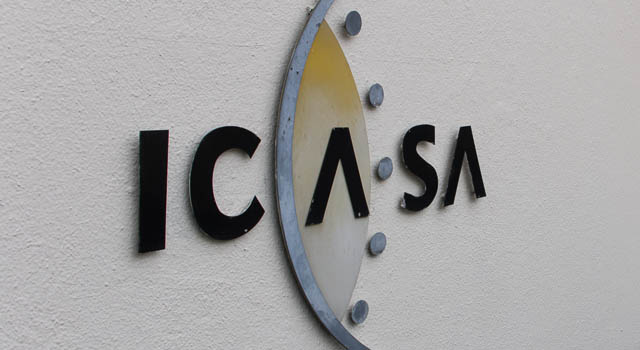
Despite facing allegations that he defrauded the Land Bank to the tune of R6m, Rubben Mohlaloga cannot be prevented from taking up a position as one of the Independent Communications Authority of South Africa’s (Icasa’s) nine councillors.
“There are no grounds for disqualifying him as a councillor, which is in line with what the lawyers in parliament have advised the parliamentary committee,” says Siya Qoza, spokesman for communicatons minister Dina Pule. “He’s innocent until proven otherwise.”
It’s not clear why he hasn’t taken up his seat on the council. Two other councillors appointed at the same time, Katharina Pillay and Nomvuyiso Batyi, took up their seats in February.
Pule named Mohlaloga to the Icasa council in November 2012. A month later, Democratic Alliance MP Marian Shinn called on the minister to take “whatever legal steps necessary” to withdraw his appointment after reports came to light that he had been charged for allegedly defrauding the Land Bank. He was arrested in October and subsequently released on bail.
Parliament is responsible for drawing up a shortlist of candidates for Icasa’s council, with the communications minister making the final choices from that list.
Qoza says Mohlaloga “probably won’t be disqualified” from the position, but adds that he doesn’t know whether or not he intends taking it up. The uncertainty has left Icasa short a councillor for nearly six months.
Shinn says the only way Mohlaloga won’t assume the role at Icasa is if he chooses not to. “When we had the parliamentary legal advisors in to talk with [parliament’s portfolio committee on communications], they said there was nothing we can legally do because [Mohlaloga] has not been convicted of any crime.”
Shinn says that when Mohlaloga was interviewed by parliament’s portfolio committee in September last year, he had not been criminally charged and, as a result, could honestly have said at the time that there was no criminal record against him or any other conflict of interest that could disqualify him from the appointment. However, she says he must have suspected there was action pending against him.
“When we interviewed him, he must have had some knowledge that he was likely to face some sort of legal action from the Land Bank.”
Shinn says that according to parliament’s legal advisors, even if action had instituted by the Land Bank, this would not be sufficient grounds “for denying him the right to take the post”.
“He was appointed when we were unaware of the proceedings facing him,” she says. “Had we known it we might have viewed his appointment differently.”
According to Shinn, the developments have created a “difficult situation” because “we need people of impeccable integrity at Icasa and the fact that this was hanging over him would cast doubt on that”.
Questions have also been raised about Mohlaloga’s ability to perform as an Icasa councillor. Shinn says he was one of the poorest candidates shortlisted, lacking knowledge of the communications sector and unable to provide adequate answers to questions posed to him during the shortlisting process.
Shinn says she told the National Assembly that “as long as this parliament continues to employ people who are not capable of fulfilling their roles, we cannot complain when these institutions fail”. — (c) 2013 NewsCentral Media




